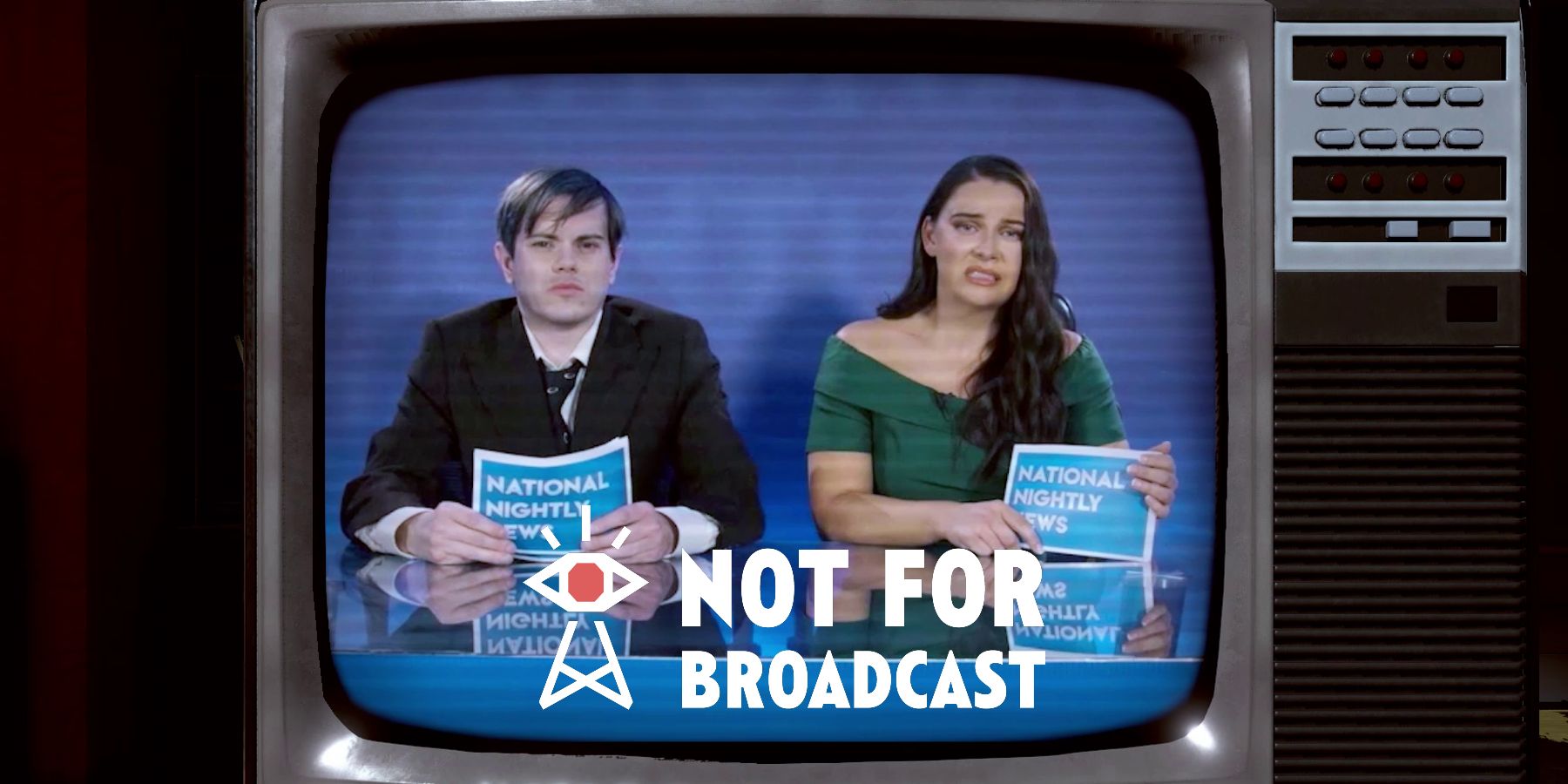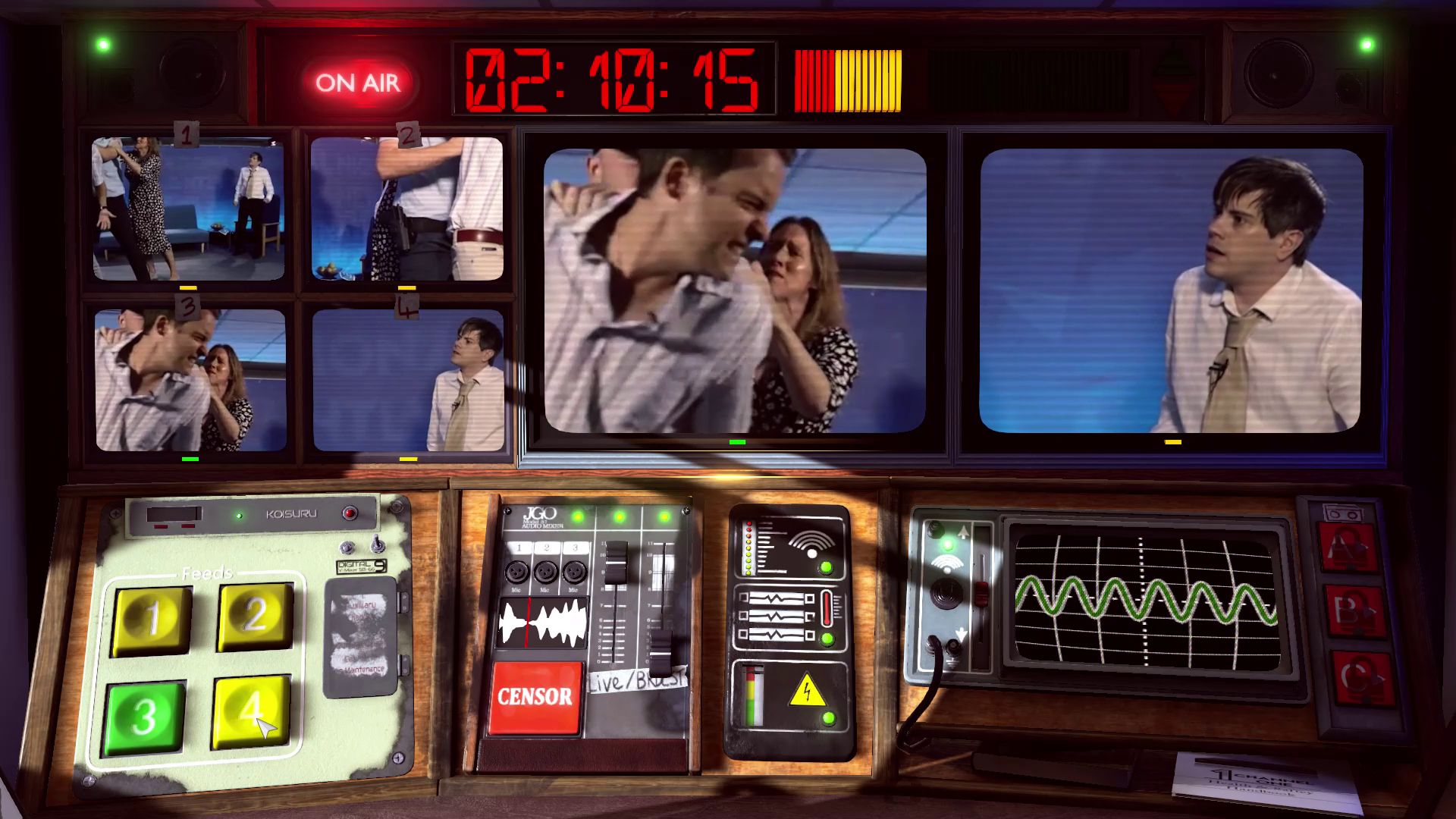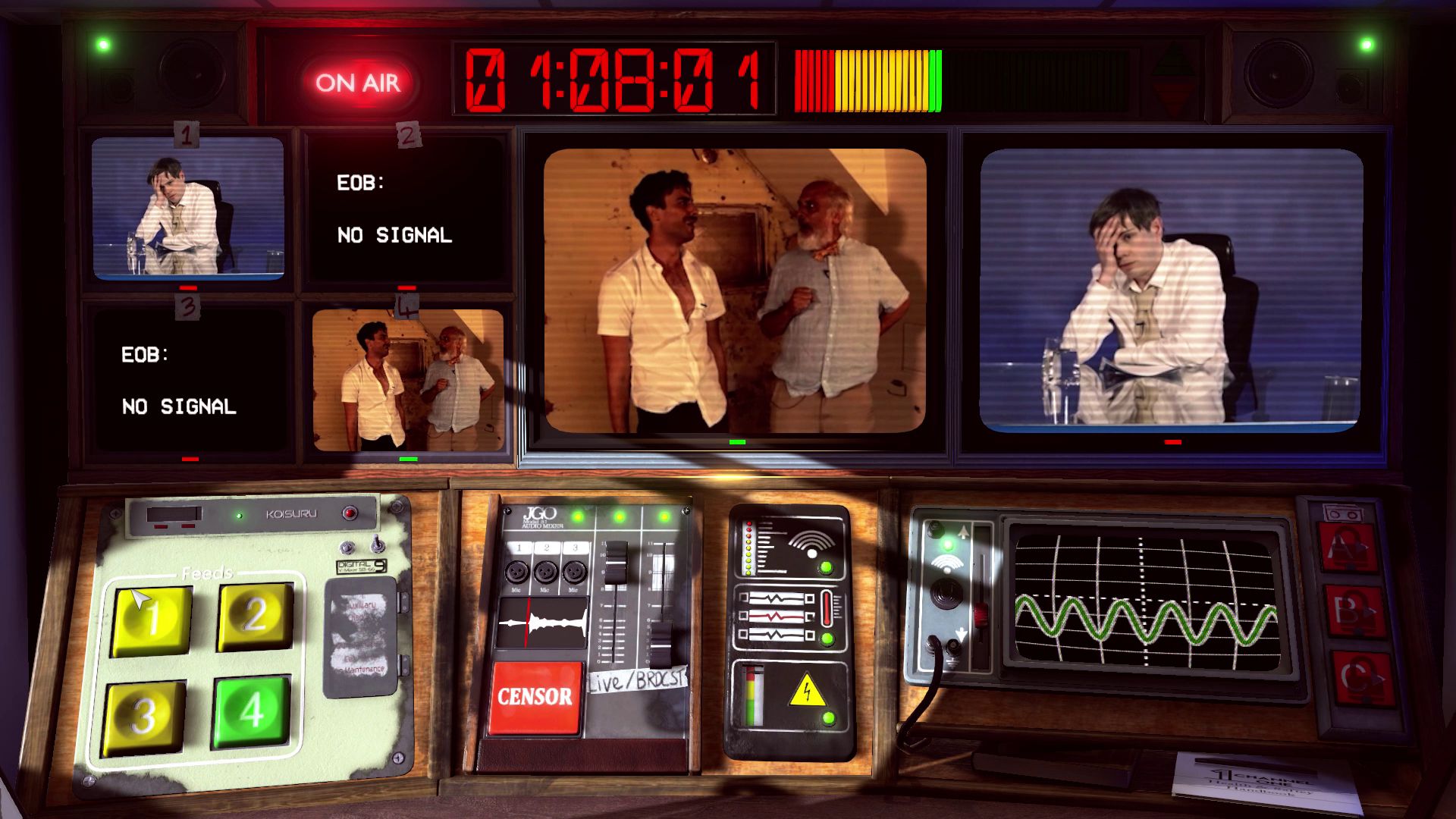Episodic video games, those with finite stories that release in chunks over time, are in an interesting state of flux. Titles like Life Is Strange and the collective works of Telltale once defined them; but last year's Life is Strange: True Colors abandoned the format and Telltale went bankrupt in 2018. The latter developer has come back under new management, and a Telltale series based on The Expanse was announced at The Game Awards 2021, but episodic titles are now often in the realm of indies like Not For Broadcast.
The final episode of Not For Broadcast, an FMV game in development since 2019, launched Tuesday. Leading up to that, NotGames co-creator Jason "Jay" Orbaum and CEO Andrew "Andy" Murray said they felt "shell-shocked," riding a rollercoaster of emotions between waiting anxiously and having an intense need to make final adjustments. One of Orbaum's fears was seeing the ending be controversial like Game of Thrones or the British TV series Line of Duty; "I've never let a story go with this much expectation riding on it." Game Rant spoke to Orbaum and Murray about how their previous theatrical experiences differ from episodic game development in terms of building an expectant community.
Not For Broadcast: An Unlikely Success
The core team behind Not For Broadcast comes from diverse creative backgrounds as actors, filmmakers, musicians, and comedians. In fact, they met raising money for a youth theater charity through productions led by Orbaum. He said in theater a live audience makes it easier to judge when jokes land or drama leads to stunned silence, so it's interesting to work on an episodic video game where the creators may have to wait weeks to gauge reactions.
Sometimes those reactions are "genuine anger" owing to Not For Broadcast's focus on party politics, though Murray said his favorite thing is seeing Steam reviews accusing the game of being both left and right-wing. Because the game has released in episodes via Early Access, those reactions have also typically been to an incomplete story, where it might not become obvious how many things NotGames are lampooning until later consequences arise. However, Orbaum said people are considerate, and the game's sales suggest its focus isn't putting many people off.
"It's extraordinary because you'd think the game would be more polarizing. I think people are laughing, and if you're laughing quite a bit you're normally having quite a good time."
Murray said it's difficult to gauge a benchmark for the game's success because of his team's inexperience with Early Access and Not For Broadcast's niche conceit. However, publisher tinyBuild gave NotGames free rein despite any potential risks — the main reason they became partners — and that seems to have paid off with the game's growing community.
Discussing The '80s in The 21st Century
Another tenet of theater that game development subverts is audience engagement. Orbaum said on a live show the audience turns up and leaves after two hours, "They don't stick around for three years and ask how it's going." Since Episode 1 released in January 2020, Not For Broadcast's burgeoning community has presented the team an exercise in maintenance with new media like Discord and streaming. The team loves interacting with fans, even debating political topics when thoughtful questions arise, but Murray said "the community has grown so much that I can't keep up with it anymore."
Luckily the small production team makes it easier for everyone to be involved with "our baby" and keep up with the dozen or so Discord threads discussing Not For Broadcast. Actors like Claire Racklyeft, who plays the game's prime minister Julia Salisbury, will sometimes even talk to people in-character. Orbaum and Murray find it hard to imagine this in nearly all other kinds of media beyond ongoing TV shows, and even then plugged-in actors like Henry Cavill on The Witcher seem like a rare exception.
Having that audience affords Not For Broadcast opportunities like developing memes that resonate with fans and creators. Orbaum points to the idea of "floods" that began as an in-universe explanation for the game's alternate 1980s setting, but became a joke people bring up to explain anything away.
"That's so amazing that the four of us sit in a room, have a stupid idea, and after that makes it into this game people you've never met are doing jokes riffing off the back of it. What an amazing world where that can happen, and what a privilege we get to do that."
Audience engagement can also shape future narrative beats when a game is episodic, which isn't possible in a play that's mostly finished before getting into the actors' hands. They can point out blind spots the creators may have missed. For example, news anchor Jeremy Donaldson is a skeptic who questions everyone, but because the first episode mainly interacts with the universe's far-left ruling party it led many to take that same position, or to criticize the game for not similarly examining right-wing politicians — even though plans were in place for it.
Now that Not For Broadcast has put out its final episode (barring any potential spiritual sequels), Orbaum and Murray are ready to really dive in with fans. They encourage people to join their Twitch streams every other Thursday for debates, follow-up questions, and laughter; live from a well-dressed studio they hadn't even considered making before their community grew. The fact people will keep connecting with the work plays into a phrase Murray said Orbaum touts around the office: "Art is never finished, it's abandoned."
Not For Broadcast is available now on PC.



